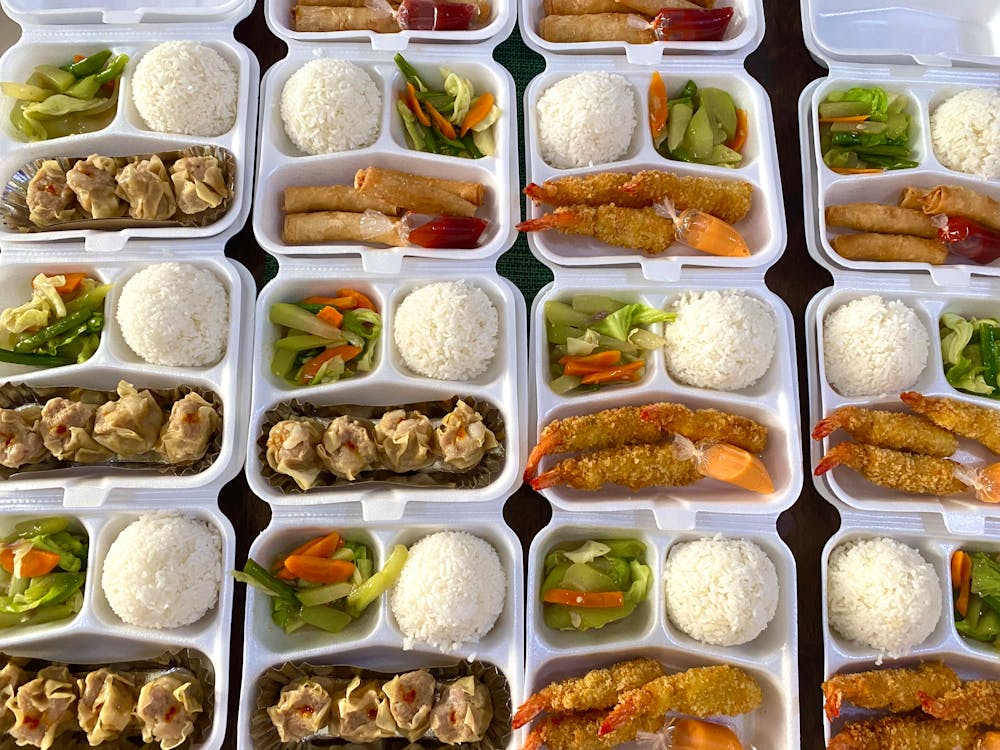The food and beverage packaging industry in the United States plays a vital role in the nation's economy, contributing $537.91 billion, or roughly 2.5% of GDP, in total economic output according to a 2021 study by AMERIPEN (the American Institute for Packaging and the Environment). The industry directly employs nearly half a million people (489,440 jobs) who earn over $117.73 billion in wages and benefits. Suppliers to the packaging industry create an additional 540,554 jobs, and the induced economic impact generates another 659,817 jobs in retail, transportation, and other sectors. In total, the packaging industry is responsible for nearly 1.7 million jobs in the U.S.The most common materials used in food and beverage packaging have traditionally been plastics (like PET, HDPE, PP), glass, metals (aluminum, steel), and paper/paperboard. However, the industry is undergoing a major shift towards more sustainable and eco-friendly packaging solutions driven by changing regulations, consumer demand, and pressure from competitors.
Key Challenges
Despite its economic importance, the food and beverage packaging industry faces several significant challenges:
Sustainability and Environmental Impact
Concerns over the environmental impact of single-use plastics and packaging waste accumulating in landfills and oceans is compelling companies to redesign their packaging using recyclable, compostable, or biodegradable materials. Transitioning to more sustainable packaging often requires costly changes to production lines and packaging designs. The lack of recycling infrastructure and clear guidelines on which materials are truly sustainable adds complexity.
Changing Consumer Preferences
Consumers increasingly demand packaging that is not just green but also convenient, with features like resealability, portion control, and ease of use. Brands must adapt their packaging to shifting preferences while still standing out on crowded store shelves. Exciting, innovative packaging is especially important for attracting younger Gen Z and Millennial shoppers.
Food Safety and Regulatory Compliance
As packaging comes into direct contact with food, it's heavily regulated by the FDA and must meet strict requirements around labeling, materials, and food contact to ensure product quality and consumer safety. Regulations are constantly evolving and vary internationally, making compliance a complex challenge as the industry becomes more globalized.
Operational Efficiency and Costs
The need to deliver packaging that is sustainable, innovative, and compliant is putting pressure on operational efficiency and costs. Packaging material and transportation costs are significant, especially with recent inflation. Optimizing production lines, reducing packaging waste, and improving supply chain efficiency is critical.
The Role of Material Requirements Planning (MRP)
To navigate these challenges while remaining competitive, food and beverage packaging manufacturers are increasingly turning to advanced Material Requirements Planning (MRP) systems as part of their Enterprise Resource Planning (ERP) software. MRP involves a systematic approach to forecasting demand, planning production schedules, procuring materials, managing inventory, and ensuring on-time delivery.
Some key benefits of MRP for food and beverage packaging companies include:
- Optimizing inventory levels to reduce waste and carrying costs while still meeting demand
- Improving production scheduling and capacity planning to maximize efficiency
- Ensuring materials are available when needed to avoid production delays
- Enabling lot tracking and traceability to promote food safety and regulatory compliance
- Providing real-time data and analytics for better decision-making
Best practices for successful MRP implementation include ensuring data accuracy, effective inventory management, focusing on accurate forecasting, and proactive vendor management. Integration with other ERP modules like accounting, sales, and purchasing is also critical for end-to-end visibility.
Opportunities Through Innovation
To overcome these challenges, the food and beverage packaging industry is embracing cutting-edge innovations in materials, technology and design:
Sustainable Materials
Recyclable and renewable materials like bioplastics made from corn, sugarcane, or algae, molded pulp and fiber packaging, and infinitely recyclable aluminum are replacing single-use plastics. Edible and biodegradable packaging made from seaweed, plant-based fibers or food starch is an emerging trend. Reusable packaging is another eco-friendly solution gaining traction.
Smart Packaging
Embedding sensors or indicators into packaging allows real-time monitoring of food freshness, temperature, and humidity to prevent spoilage and extend shelf life. Interactive features like QR codes and augmented reality engage consumers with enhanced product information and brand storytelling.
Flexible Packaging
Pouches and flexible packaging made from polyethylene or multi-layer films offer lightweight, convenient, and cost-effective alternatives to rigid containers while providing excellent barrier properties. Resealable closures and portion control features add functionality.
Optimized Packaging Design
Minimalist designs use less material without sacrificing performance. Cube optimization technology improves pallet stability and reduces transportation costs and damage. Customization with digital printing creates packaging that pops on the shelf.
How Deskera ERP Can Help Food and Beverage Packaging Companies
Deskera, a leading provider of cloud-based ERP software, offers a comprehensive suite of features and functionalities designed to help food and beverage packaging companies elevate their operations and overcome industry challenges:
Inventory Management and Traceability
Deskera ERP provides real-time visibility into inventory levels across multiple locations and warehouses. Businesses can track inventory movements, monitor stock levels, and receive alerts for low-stock or overstock situations. Batch and lot tracking capabilities enable traceability throughout the supply chain, which is critical for managing perishable goods, ensuring product quality, and complying with regulatory requirements.
Demand Forecasting and Planning
Deskera's advanced forecasting algorithms analyze historical sales data, market trends, and other factors to accurately predict future demand. These insights help businesses optimize inventory levels, reduce stockouts, and improve overall inventory management. Integration with production planning and scheduling modules enables synchronized inventory management across manufacturing operations.
Compliance and Quality Control
Deskera ERP helps food and beverage packaging companies comply with stringent food safety regulations, labeling requirements, and quality control standards. The system provides documentation of quality control processes, including inspections, testing, and certifications, ensuring product safety and integrity.
Cost Management and Profitability Analysis
Deskera offers insights into inventory valuation, cost of goods sold (COGS), and other financial metrics, enabling better cost control and profitability analysis. Businesses can track packaging material costs, analyze spending patterns, and identify opportunities for cost optimization. Automation of routine tasks and integration with accounting modules streamline financial processes.
Supplier Collaboration and Procurement
Deskera streamlines supplier management processes, allowing businesses to manage vendor relationships, automate procurement workflows, and track supplier performance. Integration with supplier portals and automated reordering help maintain optimal inventory levels and reduce lead times. Collaboration tools facilitate communication and information sharing with suppliers.
By leveraging Deskera ERP's robust MRP and other features, food and beverage packaging companies can optimize their operations, improve efficiency, ensure product quality and safety, and ultimately enhance customer satisfaction. As the industry continues to evolve and face new challenges, the capabilities of ERP systems like Deskera will be essential for businesses to remain competitive, compliant, and resilient.
A More Sustainable Future
The shift towards sustainable packaging is not just an environmental imperative but also an economic opportunity. Products making ESG claims averaged 28% cumulative growth over five years versus 20% for those without. In each category surveyed, 4-7% of consumers are willing to pay a premium of over 10% for sustainable packaging.
However, the transition will require collaboration across the value chain to improve recycling infrastructure, create clear guidelines around sustainable materials, and educate consumers. By investing in sustainable innovation and leveraging the capabilities of ERP systems with advanced MRP like Deskera, the food and beverage packaging industry can turn today's challenges into tomorrow's opportunities, delivering packaging solutions that are good for the planet and the bottom line. The roadmap is clear for an industry that is as dynamic and resilient as the packaging it produces.
Conclusion
The food and beverage packaging industry is at a critical juncture, facing both significant challenges and exciting opportunities. As consumer preferences shift towards more sustainable and convenient packaging solutions, companies must adapt to stay competitive while also navigating complex regulations, rising costs, and operational inefficiencies.
However, by embracing cutting-edge innovations in materials, technology, and design, and leveraging the power of advanced ERP and MRP systems, food and beverage packaging manufacturers can not only overcome these challenges but also unlock new avenues for growth and profitability.
The path forward requires a holistic approach that balances sustainability, efficiency, and customer satisfaction. It demands collaboration across the value chain, from suppliers to retailers to consumers, to create a more circular and resilient packaging ecosystem.
As the industry continues to evolve, those companies that can successfully navigate this transition and deliver packaging solutions that are both eco-friendly and economically viable will be well-positioned to thrive in the years ahead. The future of food and beverage packaging is bright, and with the right strategies and tools, manufacturers can lead the way toward a more sustainable and prosperous tomorrow.
For more information on how Deskera can help transform your food and beverage packaging operations, I invite you to connect with me on LinkedIn and send me a message. Let's discuss how our powerful ERP software with integrated MRP and dedicated support can help you improve efficiency, reduce costs, ensure compliance, and deliver the high-quality, sustainable packaging your customers demand. Together, we can navigate the challenges of the industry and build a stronger, more resilient future for your business.


